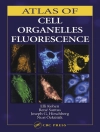This superbly illustrated book is the most comprehensive available guide to adnexal neoplasms of the skin. More than 70 entities are described in individual chapters that follow a uniform structure: historical review, clinical features, histopathology, histogenesis, immunohistochemistry, molecular anomalies, and treatment. Readers will find state of the art knowledge on all aspects, including the cytogenetic and chromosomal abnormalities associated with each neoplasm. Without exception, the illustrations are high-quality, full-color, original digital pictures. The histopathology images are taken from perfectly cut and stained sections and the immunohistochemistry illustrations are of an unrivalled quality among textbooks of dermatology and dermatopathology. A complete list of references from original description to the present day is also supplied for each neoplasm. Cutaneous adnexal neoplasms are a large and heterogeneous group of benign and malignant lesions. This book will assistthe reader in early and correct recognition, which is essential for appropriate choice of treatment and prognostic assessment.
Tabla de materias
Dedication.- Acknowledgements.- Preface.- I Neoplasms With Eccrine And Apocrine Differentiation.- 1 Apocrine And Eccrine Units.- 2 General Principles For The Histopathological Diagnosis Of Neoplasms With Eccrine And Apocrine Differentiation. Classification And Histopathologic Criteria For Eccrine And Apocrine Differentiation.- 3 Hidrocystomas.- 4 Eccrine And Apocrine Nevi.- 5 Porokeratotic Adnexal Ostial Nevus.- 6 Supernumerary Nipple.- 7 Syringocystadenoma Papilliferum.- 8 Nipple Adenoma.- 9 Hidradenoma Papilliferum.- 10 Apocrine Hidradenoma.- 11 Mixed Tumors of the Skin.- 12 Tubular Adenoma.- 13 Cutaneous Fibroadenoma.- 14 Cylindroma and Spiradenoma.- 15 Syringoma.- 16 Poromas.- 17 Tubular Carcinoma.- 18 Papillary Carcinoma.- 19 Syringocystadenocarcinoma Papilliferum.- 20 Apocrine Hidradenocarcinoma.- 21 Hidradenocarcinoma Papilliferum.- 22 Malignant Mixed Tumor Of The Skin.- 23 Cylindrocarcinoma And Spiradenocarcinoma.- 24 Syringoid Carcinoma.- 25 Porocarcinoma.- 26 Microcystic Adnexal Carcinoma.- 27 Adenoid Cystic Carcinoma.- 28 Cribriform Carcinoma.- 29 Mucinous Carcinoma.- 30 Primary Cutaneous Signet-Ring Cell Carcinoma .- 31 Secretory Carcinoma .- 32 Polymorphous Sweat Gland Carcinoma.- 33 Extramammary Paget’s Disease.- 34 Basal Cell Carcinoma With Ductal Differentiation.- 35 Neoplasms Of The Mammary-Like Glands Of The Anogenital Region.- II Neoplasms With Follicular Differentiation.- 36 Embriology, Histology And Physiology Of The Hair Follicle.- 37 Histopathologic Criteria For Follicular Differentiation.- 38 Classification Of The Proliferations With Follicular Differentiation.- 39 Nevus Comedonicus.- 40 Basaloid Follicular Hamartoma.- 41 Trichofolliculoma.- 42 Fibrous Papule.- 43 Trichoadenoma.- 44 Fibrofolliculoma And Trichodiscoma.- 45 Infundibular Cyst.- 46 Tricholemmal Cyst.- 47 Dilated Pore of Winer.- 48 Follicular Induction.- 49 Inverted Follicular Keratosis and Tricholemmoma.- 50 Panfolliculoma.- 51 Trichoblastoma.- 52 Pilomatricoma.- 53 Pilar Sheath Acanthoma.- 54 Tumor Of The Follicular Infundibulum.- 55 Proliferating Tricholemmal Tumor.- 56 Pilomatrixcarcinoma.- 57 Basal Cell Carcinoma With Follicular Differentiation.- III Neoplasms With Sebaceous Differentiation.- 58 Embriology, Anatomy, Histology And Physiology Of The Sebaceous Glands.- 59 Histopathologic Criteria For Sebaceous Differentiation.- 60 Classification Of The Proliferations With Sebaceous Differentiation.- 61 Yuxta-Clavicular Beaded Lines.- 62 Ectopic Sebaceous Glands.- 63 Nevus of Jadassohn.- 64. Steatocystoma.- 65 Folliculo-Sebaceous Cystic Hamartoma.- 66 Sebaceous Hyperplasia And Rhinophyma.- 67 Sebaceous Induction.- 68 Sebaceous Adenoma And Sebaceoma.- 69 Seborrheic Keratosis With Sebaceous Differentiation.- 70 Reticulated Acanthoma With Sebaceous Differentiation.- 71 Basal Cell Carcinoma With Sebaceous Differentiation.- 72 Sebaceous Carcinoma.- IV Neoplasms Combining Several Types Of Differentiation.- 73 Neoplasms Combining Sebaceous, Apocrine And Follicular Differentiation.- V Inherited Syndromes With Adnexal Neoplasms.- 74 Inherited Syndromes With Cutaneous Adnexal Neoplasms.- Subject Index.
Sobre el autor
Luis Requena, MD, is Professor of Dermatology and Chairman of the Department of Dermatology at Fundación Jiménez Díaz, Universidad Autónoma, Madrid, Spain. He is also Visiting Professor of Dermatology at Wake Forest University and UCSF in the United States and at Graz University in Austria. Dr. Requena is a member of the Executive Committee of the International Society of Dermatopathology and a member of the Advisory Board and Examination Committee of the International Committee for Dermatopathology – European Union Medical Specialists. He is on the editorial boards of several leading journals and has won 40 national and international research prizes in Dermatology and Dermatopathology. He has trained more than 100 residents and fellows. He is the author of 420 papers in journals included in Med Line (Pub Med) as well as 93 chapters in textbooks. In addition he is the main author of 11 monographs.
Omar P. Sangüeza, MD, is Director of Dermatopathology and Professor of Pathology and Dermatology at the Wake Forest University School of Medicine, Winston-Salem, NC, USA. He is also an Honorary Professor at the University of Montevideo, Uruguay. Dr. Sangüeza is a past president of the International Society of Dermatopathology and current president of the Sociedad Iberolatinoamericana de Dermatopatologia. He is also Editor-in-Chief of the American Journal of Dermatopathology. Dr. Sangüeza has received a number of awards, including the Walter R. Nickel Award from the American Society of Dermatopathology for Excellence in the Teaching of Dermatopathology. To date, he has trained around 70 national and international fellows. He is the author of 185 peer-reviewed journal articles as well as more than 15 book chapters and three books, including Pathology of Vascular Skin Lesions(Humana Press).












